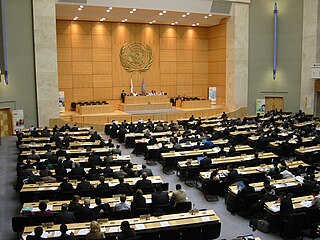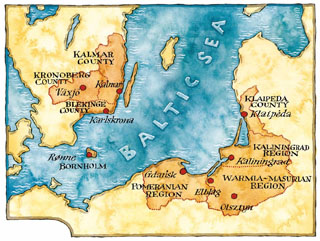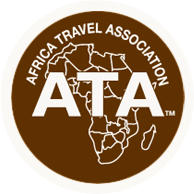
The United Nations Industrial Development Organization (UNIDO) is a specialized agency of the United Nations that assists countries in economic and industrial development. It is headquartered at the UN Office in Vienna, Austria, with a permanent presence in over 60 countries. As of October 4,2024, UNIDO comprises 173 member states, which together set the organization's policies, programs, and principles through the biannual General Conference.

An intranet is a computer network for sharing information, easier communication, collaboration tools, operational systems, and other computing services within an organization, usually to the exclusion of access by outsiders. The term is used in contrast to public networks, such as the Internet, but uses the same technology based on the Internet protocol suite.

The Group of Eight (G8) was an intergovernmental political forum from 1997–2014. It had formed from incorporating Russia into the G7, and returned to its previous name after Russia was expelled in 2014.

A business model describes how an organization creates, delivers, and captures value, in economic, social, cultural or other contexts. The model describes the specific way in which the business conducts itself, spends, and earns money in a way that generates profit. The process of business model construction and modification is also called business model innovation and forms a part of business strategy.

Asia-Pacific Economic Cooperation is an inter-governmental forum for 21 member economies in the Pacific Rim that promotes free trade throughout the Asia-Pacific region. Following the success of ASEAN's series of post-ministerial conferences launched in the mid-1980s, APEC started in 1989, in response to the growing interdependence of Asia-Pacific economies and the advent of regional trade blocs in other parts of the world; it aimed to establish new markets for agricultural products and raw materials beyond Europe. Headquartered in Singapore, APEC is recognized as one of the highest-level multilateral blocs and oldest forums in the Asia-Pacific region, and exerts significant global influence.

The World Economic Forum (WEF) is an international advocacy non-governmental organization and think tank, based in Cologny, Canton of Geneva, Switzerland. It was founded on 24 January 1971 by German engineer Klaus Schwab.

The World Summit on the Information Society (WSIS) was a two-phase United Nations-sponsored summit on information, communication and, in broad terms, the information society that took place in 2003 in Geneva and in 2005 in Tunis. WSIS Forums have taken place periodically since then. One of the Summit's chief aims is to bridge the global digital divide separating rich countries from poor countries by increasing internet accessibility in the developing world. The conferences established 17 May as World Information Society Day.

The Asia Cooperation Dialogue (ACD) is an intergovernmental organization created on 18 June 2002 to promote Asian cooperation at a continental level and to ensure coordination among different regional organizations such as the ASEAN, the Gulf Cooperation Council, the Eurasian Economic Union, the Shanghai Cooperation Organisation, and the SAARC. It is the first international organization to cover the whole of Asia. Its secretariat is in Kuwait City.

The Internet Governance Forum (IGF) is a multistakeholder governance group for policy dialogue on issues of Internet governance. It brings together all stakeholders in the Internet governance debate, whether they represent governments, the private sector or civil society, including the technical and academic community, on an equal basis and through an open and inclusive process. The establishment of the IGF was formally announced by the United Nations Secretary-General in July 2006. It was first convened in October–November 2006 and has held an annual meeting since then.

Design management is a field of inquiry that uses design, strategy, project management and supply chain techniques to control a creative process, support a culture of creativity, and build a structure and organization for design. The objective of design management is to develop and maintain an efficient business environment in which an organization can achieve its strategic and mission goals through design. Design management is a comprehensive activity at all levels of business, from the discovery phase to the execution phase. "Simply put, design management is the business side of design. Design management encompasses the ongoing processes, business decisions, and strategies that enable innovation and create effectively-designed products, services, communications, environments, and brands that enhance our quality of life and provide organizational success." The discipline of design management overlaps with marketing management, operations management, and strategic management.

The Economic Research Institute for ASEAN and East Asia or ERIA is an international organization established in Jakarta, Indonesia in 2008 by a formal agreement among Leaders of 16 countries in the East Asian region to conduct research activities and make policy recommendations for further economic integration in the East Asia. ERIA works very closely with both the ASEAN Secretariat and 16 Research Institutes to undertake and disseminate policy research under the three pillars, namely “Deepening Economic Integration”, ”Narrowing Development Gaps”, and “Sustainable Development” and provide analytical policy recommendations to Leaders and Ministers at their regional meetings. ERIA provides intellectual contributions to East Asian Community building and serves as a Sherpa international organization. ERIA Ranks 9th among the world's "Top International Economics Think Tanks" according to the 2020 Global Go To Think Tanks Index Report conducted by the University of Pennsylvania.
Open Ukraine Foundation is a nonpartisan international philanthropic foundation established in July 2007 by Arseniy Yatsenyuk and Zbigniev Drzymala to support public diplomacy and raise the profile of Ukraine internationally. Also for strengthening and development of Ukraine's reputation in the world.
A phase-gate process is a project management technique in which an initiative or project is divided into distinct stages or phases, separated by decision points.
The Baltic Development Forum is an independent think-tank and non-profit high-level and agenda-setting networking organisation with strategic partners and sponsors from large companies, major cities, institutional investors, business associations and academia in the Baltic Sea Region. The network involves more than 8,000 decision-makers from all over the region and beyond.

European Union–Kazakhstan relations are the international relations between the Republic of Kazakhstan and the common foreign policy and trade relations of the European Union.

The Euroregion Baltic (ERB) refers to a cross-border Euroregion in the south-east of the Baltic Sea Region, consisting of eight regions of Denmark, Lithuania, Poland, Russia, and Sweden. On 2 March 2022, the ERB's Executive Board suspended Russia's membership, in response to Russia's invasion of Ukraine.

Africa Travel Association (ATA) is a non-profit international travel industry trade association established in 1975.
The North East of England Process Industry Cluster (NEPIC) is an economic cluster developed in accordance with Michael Porter's theories and strategies regarding industrial clusters. The chemistry-using sectors in North East England, where more than 1,400 businesses are headquartered in the industry's supply chain, formed this Process Industry Cluster. In the north-east of England, the industry employs approximately 35,000 direct workers and around 190,000 indirect workers, who collectively account for more than one-third of the area's industrial economy. Companies in the cluster produce 35% of the pharmaceuticals and 50% of the petrochemicals used in the UK, making this area the only net exporter of goods from the country. The area has more than £13 billion in exports.

The Bangladesh, China, India and Myanmar Economic Corridor (BCIM) was a proposed corridor connecting India and China through Myanmar and Bangladesh as a corridor.
The European Business History Association (EBHA) is an academic association devoted to business history in Europe. It holds annual congresses and a bi-annual doctoral summer school. It is registered as a Scottish charity. Its constitution states its objectives as "to advance the education of the public concerning all aspects of the history of business and management in Europe and to promote research into all such aspects". Its aim is the organisation of conferences and seminars, the publication of a newsletter and other material girls, the encouragement of research in all aspects of business history, and specifically the promotion of collaborative projects based in several European countries such as The Performance of European Business in the 20th Century project per instance. The association was established to enhance inter-European contacts and promote extra-European links among business historians, to encourage the exchange of business history graduate students and to promote teaching and interest in all such aspects.














